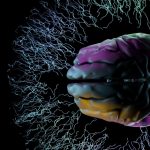In Silicon Valley and beyond, the Wojcicki sisters stand out for their significant impact across technology, science, and public health. Anne, Janet, and Susan Wojcicki have each forged distinctive career paths, gaining recognition individually while often being referenced collectively for their expertise and leadership. Their journeys span the tech sector, academia, and science communication, consistently making headlines, most recently with Anne Wojcicki’s $305 million bid to regain ownership of 23andMe. New generations look to their example for lessons on achievement, perseverance, and navigating challenges both professional and personal.
Interest in the Wojcicki sisters’ careers and lives has consistently attracted media attention over the years, particularly during milestones such as Susan Wojcicki’s appointment as YouTube CEO, Anne’s marriage to Google’s Sergey Brin, and the launch of Mattel’s Barbie dolls celebrating women in STEM. While earlier coverage focused largely on their professional progress and family background, recent reports have shifted to the challenges faced by companies like 23andMe, including cybersecurity incidents, regulatory hurdles, and leadership changes. Their stories have evolved from rising achievements to a nuanced portrait of public and private adversity, providing greater depth to public understanding of their influence across multiple sectors.
What Drives Anne Wojcicki’s Effort to Reacquire 23andMe?
Anne Wojcicki, co-founder and former CEO of 23andMe, has launched a $305 million offer to regain control of the company following a turbulent period marked by financial decline and security breaches. Her academic background in biology from Yale and her early leadership propelled 23andMe to breakthroughs such as FDA authorization for genetic health risk testing and a peak market valuation near $6 billion. However, the firm’s fortunes diminished due to decreased consumer demand, mounting privacy concerns, board resignations, and a widely publicized data breach affecting millions of users. By 2025, after declaring bankruptcy and stepping down as CEO, Wojcicki decided to pursue the reacquisition, stating,
“This company was built with a mission to empower people, and I believe it still has potential to serve that purpose.”
How Have Janet Wojcicki’s Academic Contributions Shaped Public Health Research?
Janet Wojcicki holds a faculty position at the University of California, San Francisco, with a research focus on the epidemiology of childhood obesity in vulnerable populations. She obtained her doctorate from UCLA and has developed longitudinal studies tracking maternal nutrition and child health outcomes. Janet’s academic work extends to her role on the board of the San Francisco General Hospital Foundation, situating her influence at the intersection of medical anthropology and community health.
What Legacy Did Susan Wojcicki Leave at Google and YouTube?
Susan Wojcicki began her journey at Google as its 16th employee after renting her Menlo Park garage to the startup. She later became an executive, contributing to products such as Google Images, AdSense, and Google Books. Susan played a pivotal role in Google’s YouTube acquisition and served as CEO of the video platform for nine years. Her departure as CEO in 2023 was attributed to personal reasons; she died in 2024 after a battle with lung cancer, closing a chapter on her longstanding career in technology management and product innovation.
The careers and personal lives of the Wojcicki sisters illustrate the interconnectedness of ambition, expertise, and resilience in fields traditionally shaped by rapid change and heightened scrutiny. Anne’s ongoing involvement in biotechnology continues to raise questions about how companies can rebuild after crises, while Janet’s research remains germane as the medical community examines social determinants of health. Susan’s legacy at influential technology brands highlights the impact of executive leadership on digital media. For professionals and observers alike, their trajectories underscore how individuals can influence broad domains through dedicated effort, adaptation to setbacks, and a persistent pursuit of their foundational goals.










